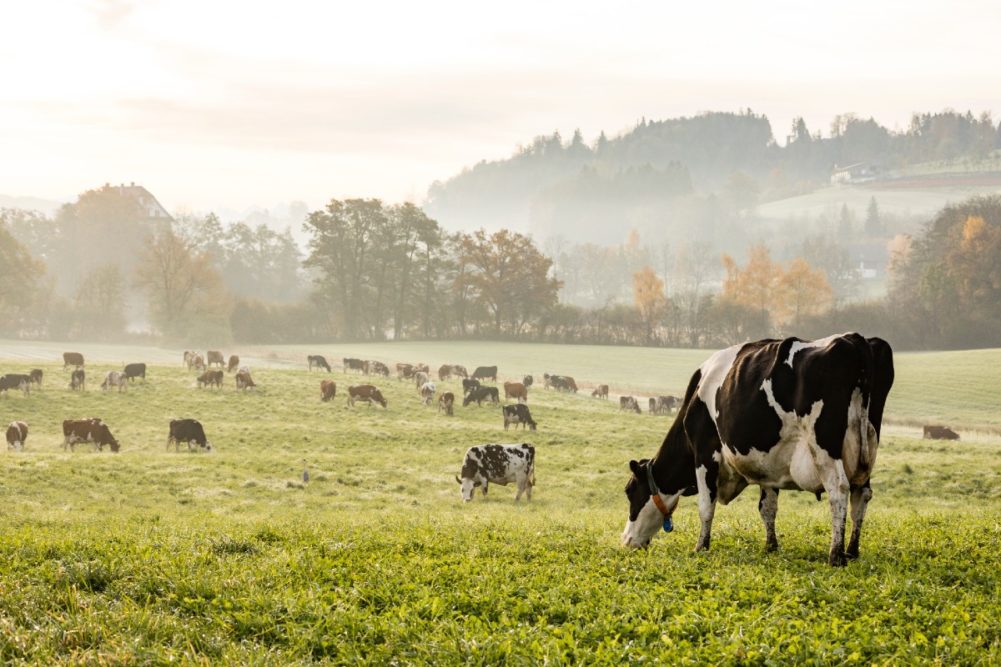PARIS – A new collaboration joining Danone with Global Methane Hub (GMH) aims to reduce methane emissions and drive scalable farming solutions.
The corporation and its nonprofit partner announced Danone became the first corporate funder of the Enteric Fermentation R&D Accelerator – a global research effort coordinated by GMH with the support of philanthropic organizations and governments.
GMH shared that the accelerator has raised $200 million in funding thus far. With research focusing on mitigating enteric fermentation – the digestive process of ruminant livestock – the accelerator plans to examine feed additives, plant and animal genetics, methane vaccines, and affordable measurement technologies.
Danone said the partnership also allows it to work with academic experts and technology providers to test solutions and drive farming innovations applicable in “multiple countries.”
Additionally, Danone revealed it will work with GMH to develop “a methane accounting and feed optimization decision support tool” for dairy cattle. Danone said the first pilot will include 1,000 farmers in Morocco, with a goal of demonstrating the benefits of improved livestock nutrition, such as productivity, farmers’ income and reducing methane emissions.
“Reducing methane is a major stake for the climate, the sustainability of our foods systems and the future of many farming communities,” said Danone chief executive officer Antoine de Saint-Affrique. “As a long-time sustainability pioneer, we know that doing it at scale and in an impactful way cannot be done by anyone in isolation. Our partnership with the Global Methane Hub is a key milestone in creating, testing and deploying impactful and practical solutions in the field of methane reduction. This will allow the world to keep enjoying the benefits of yogurt and help secure a sustainable future to many rural communities.”
GMH CEO Marcelo Mena said methane reduction efforts can have “an extraordinary impact” in the sector.
“Seventy percent of agriculture-driven methane emissions come from enteric fermentation, making it the largest single source of methane emissions of any sector,” Mena said. “Through scaled up investment from philanthropy, governments and the private sector, we can accelerate progress in developing practical innovative solutions and create the scale and coordination needed for these solutions to be impactful, ensuring greater economic and food security for local communities and [transforming] the future of sustainable farming.”

